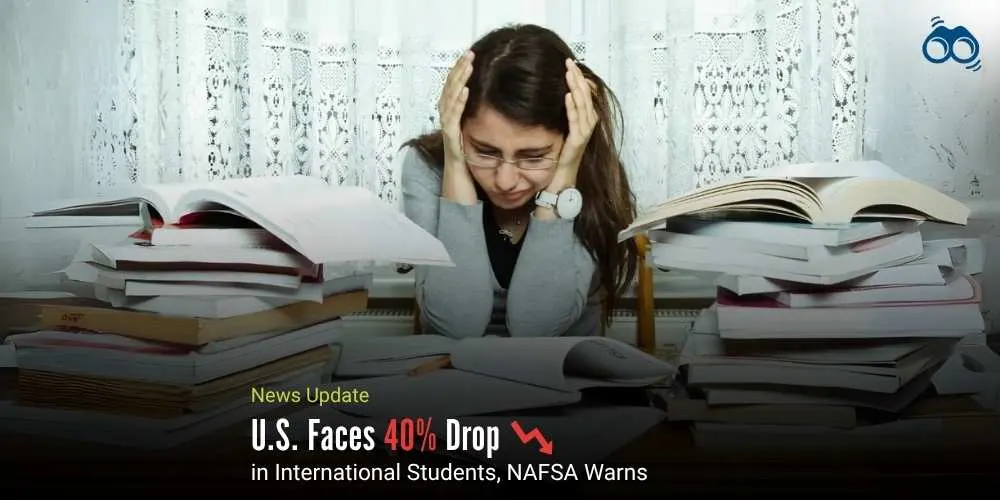$7 Billion at Stake: International Student Decline Threatens U.S. Economy
Record High to Rapid Drop: International Enrolment Crisis Hits U.S. Universities
International student enrollment in the United States is showing a noticeable decline. This shift is largely due to growing global uncertainty and stricter immigration policies. Just recently, in the 2023–24 academic year, the U.S. welcomed a record 1,126,690 international students. This figure reflected a strong recovery following the pandemic and marked the highest enrollment on record. However, this upward trend is now reversing. According to Inside Higher Ed, modelling by NAFSA: Association of International Educators predicts that up to 150,000 fewer international students may enrol in the coming academic year. This would result in a 40% decline in new foreign student admissions and an overall 15% decrease across U.S. colleges and universities.
This decline is not only a financial concern; it also affects the country’s reputation as a global leader in higher education. NAFSA points to several contributing factors. For instance, there was a three-week suspension of visa interviews from late May to mid-June. Additionally, students in key countries, such as India, China, Nigeria, and Japan, faced limited appointment availability. On top of this, new visa restrictions were introduced for 19 nations, following an executive order issued by President Trump in June.
The economic impact is also significant. NAFSA estimates that the drop in international students could cost the U.S. economy around $7 billion in local spending. Furthermore, it may lead to the loss of over 60,000 jobs in education and related sectors. Fanta Aw, NAFSA’s executive director, emphasised that the financial loss is just one part of a larger issue. She explained that international students play a vital role in driving innovation, supporting research, and enhancing global competitiveness. Their reduced presence could weaken the country’s long-term academic and economic prospects.
Concerns have also been raised about the federal government’s broader approach to higher education. Reports suggest that the Trump administration used federal research funding to pressure universities into dismantling diversity programmes and changing international admissions policies. Additionally, some international students already in the U.S. were reportedly detained or threatened with deportation. These incidents were linked to issues such as publishing critical content, minor legal violations, or failing to declare biological samples. Taken together, these developments paint a troubling picture for the future of international education in the United States. The report connects current immigration and academic policies to long-term risks for institutions and the wider economy. It also underscores the urgent need for policy reforms to protect the country’s global academic standing and ensure continued international engagement.
Editor’s Note:
The recent decline in international student enrolment in the United States is more than just a temporary dip; it reflects a deeper shift with wide-reaching consequences. For years, the U.S. has been seen as a top destination for students from around the world. Its universities have offered not only high-quality education but also opportunities for research, innovation, and global collaboration. However, recent changes in immigration policies and visa procedures are making it harder for students to access these opportunities. Longer visa waits, fewer appointments, and stricter rules are deterring international students from studying in the U.S. This is causing a significant drop in new enrollments, concerning universities that depend on these students to enhance campus life and academics. International students significantly boost the U.S. economy through tuition and spending. A decline would mean financial losses and job cuts, potentially harming the country's higher education reputation. Universities face pressure to alter admissions and diversity programs, creating a less welcoming atmosphere.
Skoobuzz believes that to maintain the U.S.'s long-standing benefit from international students, thoughtful action is needed. Visa processes must improve for timely and fair access, universities need support for diverse campuses, and national policies should recognise the long-term value international students bring, financially, ideologically, and globally.














0 Comments (Please Login To Continue)